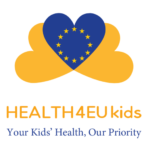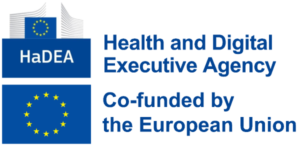ARTICLE FOR CHILDREN, KINDERGARTEN, FAMILY: Proper Nutrition as an Important Multisensory Experience
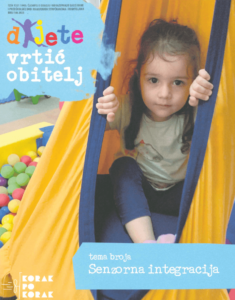
Associate Professor Sanja Musić Milanović, MD, MPH, PhD, epidemiologist1,2
Maja Lang Morović, M. ED.1
Sanja Meštrić, M.A. in Environmental Health Engineering 1
1Croatian Institute of Public Health, Health Promotion Service, Ministry of Health Reference Center for Health Promotion
2University of Zagreb, School of Public Health “Andrija Štampar,” Faculty of Medicine
Contact:
Sensory integration is a process that enables us to function and experience the world around us on a daily basis. Like learning and memory, sensory integration is essential for maintaining our health. Healthy habits and lifestyles are significantly challenged in individuals with sensory integration difficulties. The integration of tactile, proprioceptive, vestibular, auditory, and visual stimuli is a prerequisite for participating in regular physical activity, while diverse and varied nutrition primarily requires the integration of gustatory, olfactory, tactile, and proprioceptive stimuli. Since none of us has perfect sensory integration, and the individual experience of the environment is, among other things, a result of the specificity in integrating certain sensory stimuli, each of us has a unique, personal view of the world.
There are people who are very sensitive to environmental stimuli. Their sensory integration is very strong, which can result in excessive sensitivity to stimuli, or hypersensitivity. In such individuals, certain stimuli can cause discomfort, and these individuals will try to avoid some uncomfortable stimuli. One form of hypersensitivity to stimuli is excessive sensitivity to taste. They are so-called “supertasters.” Such individuals are oversensitive to certain tastes, smells, and food textures, leading them to avoid certain foods, which in extreme cases can result in numerous disorders and diseases related to nutrition. Sensitivity is often observed in children as well. Children who have limited experience with food and are developing their relationship with food and dietary preferences may often be perceived as picky. Picky children refuse certain types of food and consume only limited nutrients. They are the reason why those who prepare their meals become very skilled at hiding ingredients just to meet the child’s nutritional needs.
To positively influence and support the healthy development of dietary habits in children, Finland has developed a health promotion program for children called “Smart Family.” Within this program, numerous tips and activities have been developed on ways to maintain the health of the entire family, all aimed at creating healthy habits in children and preventing obesity. The “Smart Family” program can be implemented in educational institutions, health institutions, and families by incorporating healthy choices into everyday life and routines. Activities are based on scientific evidence from the fields of nutrition, physical activity, medicine, behavioral sciences, and early development.
Methods for promoting proper nutrition in the “Smart Family” program encompass all environments where a child resides and are based on encouraging desirable and positive behaviors and diverse nutrition, rather than emphasizing behaviors and foods that a child rejects or avoids. Activities can be carried out in different situations, during meals, in structured and unstructured activities. Children are introduced to food in a positive, encouraging way, learning about its origin, forms, composition, and flavors, using various senses and taking into account the specifics of sensory integration. Activities are based on the child’s interests, conducted through play, exploration, and experimentation, encouraging active participation of children and their multisensory experience of food. As always, in this case, the educator is the most important tool. The attitudes toward food and the behavior of educators have the most significant impact on shaping a child’s dietary habits. Therefore, it is important for educators and other influential adults in the child’s environment to be aware of their own relationship with food and to talk to children about skills rather than difficulties, such as saying: “I noticed that you’re bravely trying that pepper.” If a child uses words like “I don’t like this,” or similar, they should not be corrected but praised for any positive behaviors. There is no need to blame the child for leaving food on the plate; instead, praise them when they try a new food they had been avoiding. The main idea is to stimulate the child’s curiosity, encourage them to practice the bravery of tasting new flavors, face fears and prejudices about food, recognize them, and embark on an exciting adventure into the world of food.
One method used in this program is the “Sapere” method of early food education based on multisensory experience. In this method, the child gets to know the world of food through the senses of taste, smell, sight, hearing, and touch. Sapere is a Latin word that means to taste, feel, know, and understand the taste. This method also encourages the development of sensory integration because all senses are used to get to know food, not just the sense of taste, and each individual sensory experience is treated as important, not as right or wrong.
Through the “Smart Families” program, children practice bravery, a tasting courage that becomes contagious and positively affects the entire group, simultaneously developing dietary habits in children. After the very successful implementation of the “Smart Family” program in Finland, this program will be implemented in other European Union countries through the joint action “Health4EUKids.” In Croatia, it will be implemented as part of our well-known program “Health Week in Kindergartens,” giving all kindergartens the opportunity to try to incorporate these activities into their daily work. By using this new approach, we will take another step towards improving the health literacy and preserving the health of our current children, the people of tomorrow.
#HaDEA
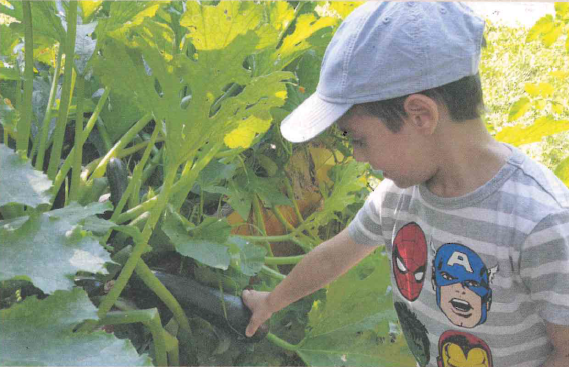
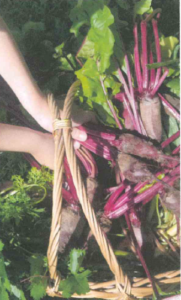
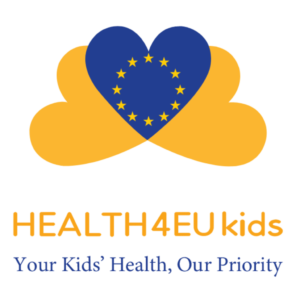 The “HEALTH4EUkids” Joint Action aims to implement health promotion and prevention strategies for child obesity across European countries. It seeks to share best practices and research findings, particularly focusing on the initiatives Grunau Moves from Germany and Smart Family from Finland. The project involves knowledge transfer, cooperation between member states, policy development, and the promotion of healthy lifestyles in families and communities. Its goal is to prevent childhood obesity, increase physical activity and healthy diet, and ensure the sustainability and transferability of successful practices to other member states.
The “HEALTH4EUkids” Joint Action aims to implement health promotion and prevention strategies for child obesity across European countries. It seeks to share best practices and research findings, particularly focusing on the initiatives Grunau Moves from Germany and Smart Family from Finland. The project involves knowledge transfer, cooperation between member states, policy development, and the promotion of healthy lifestyles in families and communities. Its goal is to prevent childhood obesity, increase physical activity and healthy diet, and ensure the sustainability and transferability of successful practices to other member states.
This project has received funding from the European Union’s EU4HEALTH Programme under the Grant Agreement no 101082462
